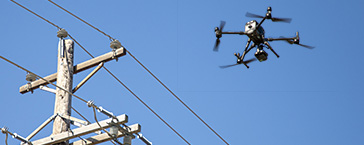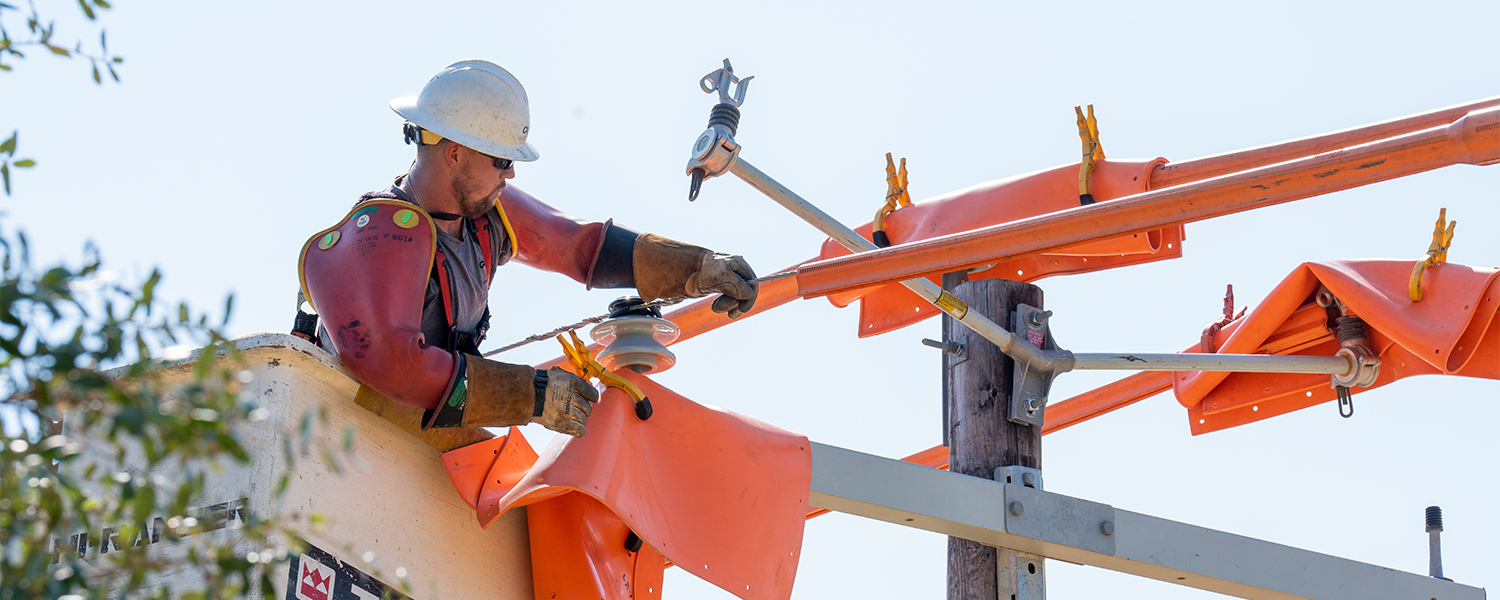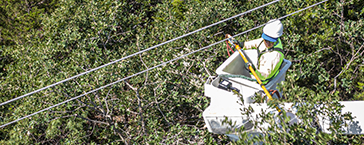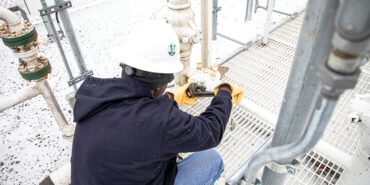You can count on CoServ
From the engineers who plan and design our electric infrastructure to the linemen and system operators who keep it running, CoServ's top priority is to provide reliable and affordable electric service to our Members.
Utilities measure their reliability using a metric called the SAIDI score (System Average Interruption Duration Index), which measures how long the average Member was without electricity.
For 2024, CoServ’s SAIDI score was a record low 22.6, meaning the average CoServ Member was without power for less than 23 minutes. Some Members may have been out longer and some may not have been without power at all but the index looks at the average for all Members. The lower the SAIDI score, the better.
Put another way, the average Member experienced uninterrupted service 99.99% of the time in 2024.
That means Members can count on CoServ to keep the lights on. When power outages do occur, our linemen crews will be there 24 hours a day, seven days a week to restore power as safely and quickly as possible.
In most cases, CoServ linemen and system operators are able to restore power before they even fix the source of the outage by using redundancies on our system to reroute power.
Even a minor blink on the lines could be a sign of a bigger problem, which is why our crews investigate these incidents before they cause a longer outage.
Reliability in the news
Here's the latest news from CoServ about reliability and the growth of our service territory.
CoServ maintains high reliability score
CoServ’s SAIDI score for 2021 was 34.39, which means the average Member was without power for about 34 minutes. The lower the score, the better. Major weather events and power supply problems do not count against SAIDI scores.
How CoServ prepares for Old Man Winter
Whether it’s buying energy ahead of time, training our operations crews or winterizing the fleet, CoServ starts preparing for cold weather long before the local television meteorologists issue their forecasts.
The biggest factors that could affect your winter energy bill
CoServ Members should expect high electric bills in January and February just as they do in the summer months.









